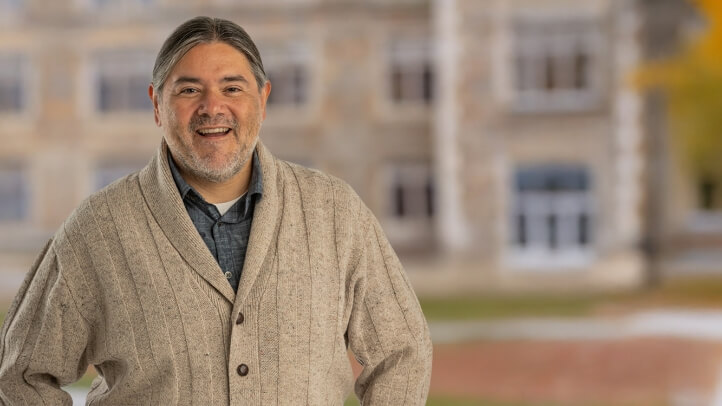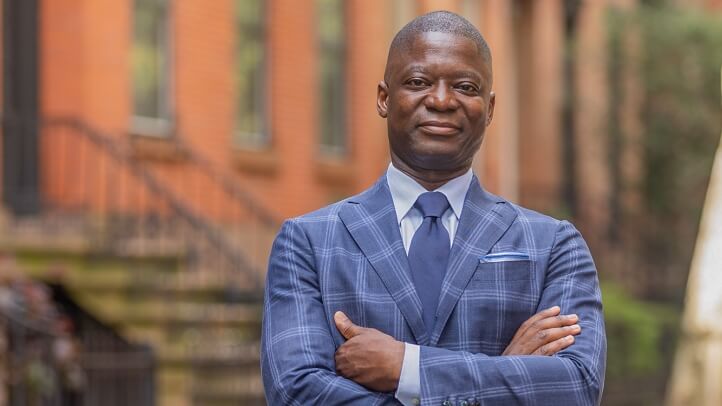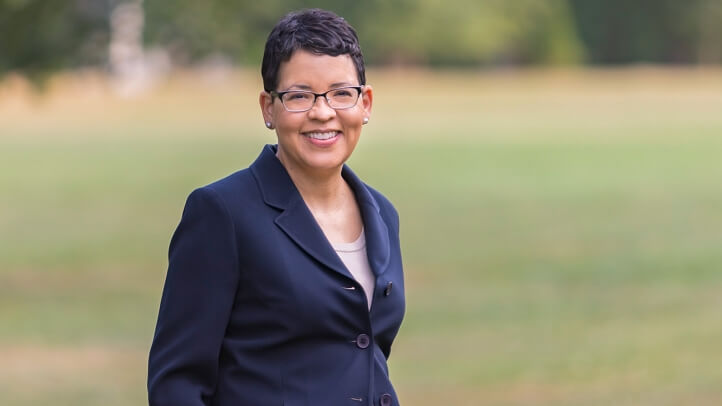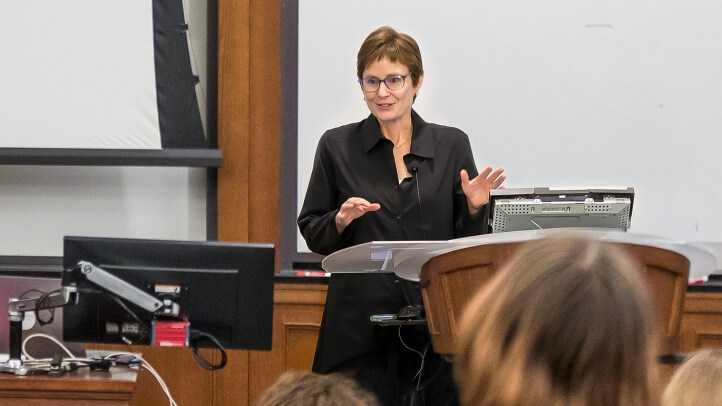About the Program
Our work is grounded in scholarship that has established race as at the core of interpreting the history of the Americas. Race here is a set of ideas that rely upon understandings of religion, culture, labor, biology, and politics, and have both rationalized profound inequality and galvanized movements for social justice.
Scholars have charted the connections between legal culture and slavery and its abolition, the emergence of democratic states, imperialism, social welfare policy, and movements for civil and human rights.
Our work is linked to the broad trends in social and cultural history, exploring how race and law have come together to shape ideas about home, family, marriage, gender, and sexuality.
-
Our Scholarship
New Scholarship
The interests of the core faculty reflect many of the defining concerns of the Program in Race, Law, and History. We are historians of race in the United States and Latin America, of law and the transformation of the state, of citizenship and claims-making, and of Atlantic world slavery.
Training Emerging Scholars
With foundational courses in American Legal History and Legislation, specialized seminars in the history of slavery and a course on the boundaries of citizenship, and an intensive faculty-student legal history workshop, the program offers you numerous opportunities to explore and develop your expertise.
Many of our students take insights from their involvement in the Program in Race, Law, and History into the world of legal practice. From civil rights and public interest positions to immigration law internships to judicial clerkships, our students draw upon their work with the program to better analyze present-day dynamics of race in historical terms.
Some continue their studies in MA and PhD programs that fully explore the interdisciplinary opportunities at Michigan Law and throughout the university. Still others extend their work with the program into academic careers, writing and teaching in colleges, law schools, and universities.
-
Fellowship in Race, Law, and History
The Program in Race, Law, and History at Michigan Law will award up to five academic year fellowships to students enrolled in JD, PhD, and other terminal graduate programs at the University of Michigan in Ann Arbor. The program fosters interdisciplinary research at the intersection of three lines of intellectual inquiry: law, history, and race. Through helping law and graduate students engage in this scholarship and collaborate with scholars in the field at Michigan Law and beyond, the program provides a space for historical investigation into the ongoing salience of race in our world.
-
Collaborations
Our work at Michigan Law assumes national and international scope through our collaborations.
We have co-sponsored a roundtable in Paris and helped to organize a conference in Brazil. Our partners include the American Society for Legal History and the Legal History Consortium (which include Michigan Law as well as the law schools of the University of Illinois, University of Minnesota, and University of Pennsylvania). Here, new scholarship, emerging scholars, and the building of collaborative networks come together and exemplify our model.
American Society for Legal History
The Celia ProjectThis collaborative research project will generate new scholarship that illuminates the history of sexual violence, women, and slavery in the United States through a detailed exploration of the case, The State of Missouri v. Celia, A Slave.
In Missouri in 1855, an enslaved woman named Celia was tried, convicted, and ultimately executed for murdering her owner, Robert Newsom, a murder she confessed to committing in an effort to end what had been five years of sexual abuse. Celia’s trial included remarkable (though unsuccessful) arguments about the rights of enslaved women to self-defense against sexual assault.
The reaction to these arguments would shape the legal treatment of the rape of slaves in the years leading up to the Civil War, facilitate the systematic sexual exploitation of enslaved women and the refusal to recognize that exploitation as “rape,” and leave a challenging legacy of racism and sexual violence to the present day in the United States.
The Celia Project brings together social, cultural, and legal historians with literary scholars to explore how we might collectively produce and present new analyses of Celia and the multiple implications of the case. Directed by Professor Martha S. Jones and Hannah Rosen, Association Director of the Institute for Research on Women and Gender (IRWG.)
The Law in Slavery and Freedom ProjectThe Law in Slavery and Freedom Project is a curricular and research initiative that has been developed in collaboration with The Ecole des Hautes Etudes en Sciences Sociales, France; the University of Cologne, Germany; the University of Campinas, Brazil; the University of Windsor, Ontario, Canada; the Université Cheikh Anta Diop, Dakar, Senegal; and the Centro Juan Marinello, Havana, Cuba.
Students from these institutions have participated in seminars taught by faculty from all sites and continue to exchange ideas through online discussions of readings on the topic of law and slavery in the Atlantic world.
The faculty and graduate student collaborators are doing research on slavery, law, and emancipation in regions from the U.S. South to the Caribbean, France, Peru, West Africa, and Brazil.
Affiliated Faculty
Michelle Adams, Law School
Charlotte Karem Albrecht, College of Literature, Science, and the Arts
Samer Ali, College of Literature, Science, and the Arts
Sara Awartani, College of Literature, Science, and the Arts
Nicholas Bagley, Law School
Patrick Barry, Law School
Elise Boddie, Law School
Melissa Borja, College of Literature, Science, and the Arts
Pamela Brandwein, College of Literature, Science, and the Arts
Howard J. Bromberg, Law School
Luis C.deBaca, Law School
Pär Cassel, College of Literature, Science, and the Arts
Sueann Caulfield, College of Literature, Science, and the Arts
Kristin Collins, Law School
Nicholas Cornell, Law School
Angela D. Dillard, College of Literature, Science, and the Arts
Gregory E. Dowd, College of Literature, Science, and the Arts
Jatin Dua, College of Literature, Science, and the Arts
Sara Forsdyke, College of Literature, Science, and the Arts
Edgar Franco-Vivanco, College of Literature, Science, and the Arts
Daniel Fryer, Law School
Kristin Ann Hass, College of Literature, Science, and the Arts
Daniel Herwitz, College of Literature, Science, and the Arts
Don Herzog, Law School
Nicholas Calcina Howson, Law School
Murad Idris, College of Literature, Science, and the Arts
Ellen D. Katz, Law School
Leila Kawar, College of Literature, Science, and the Arts
Noah Kazis, Law School
Alexandra B. Klass, Law School
Brian Klein, College of Literature, Science, and the Arts
Naomi R. Lamoreaux, Law School
Matthew Lassiter, College of Literature, Science, and the Arts
Jeremy Levine, College of Literature, Science, and the Arts
Jessica Litman, Law School
Barbara L. McQuade, Law School
Julian Davis Mortenson, Law School
Rafael Neis, College of Literature, Science, and the Arts
Leonard M. Niehoff, Law School
William J. Novak, Law School
JJ Prescott, Law School
Richard Primus, Law School
Gabriel V. Rauterberg, Law School
Sanne Ravensbergen, College of Literature, Science, and the Arts
Margo Schlanger, Law School
Rebecca J. Scott, Law School
Heather Ann Thompson, College of Literature, Science, and the Arts
James Clouser Wolfe, College of Literature, Science, and the Arts
Kate Wroblewski, College of Literature, Science, and the Arts
Ekow N. Yankah, Law School
Mariah Zeisberg, College of Literature, Science, and the Arts









